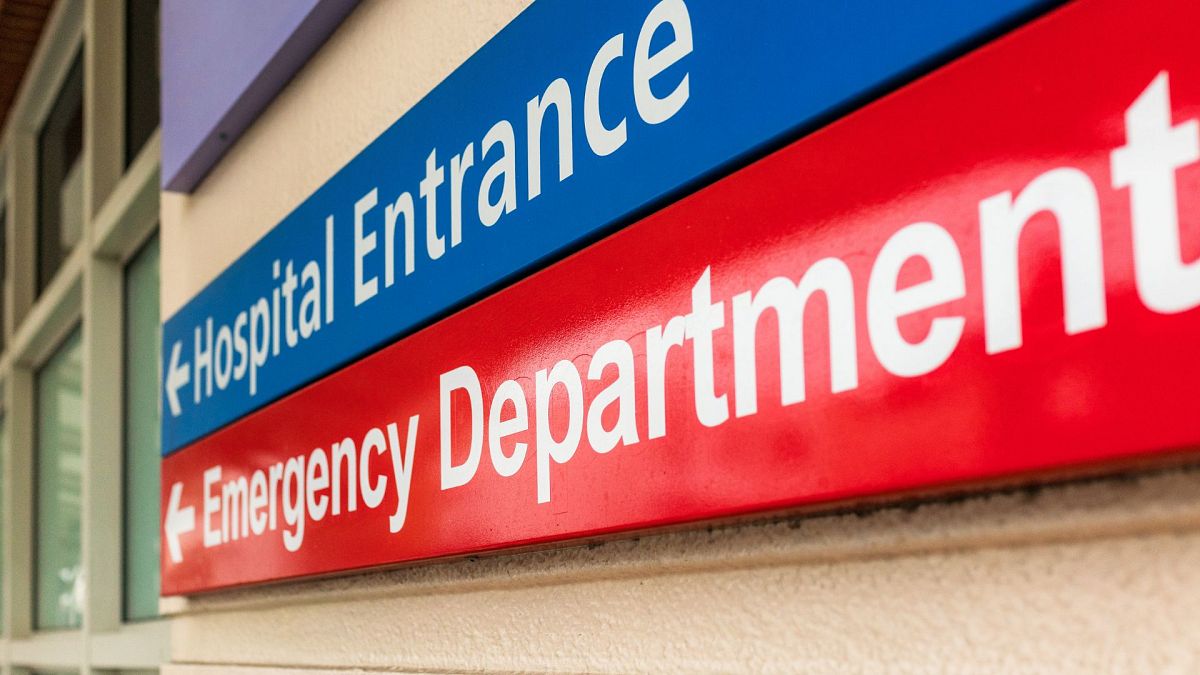A new report from the World Health Organization reveals that millions of people in Europe are struggling to pay their medical bills.
This week, officials from the World Health Organization are meeting in Estonia to mark the 15th anniversary of the Tallinn Charter, the framework that examines the relationship between wealth and health.
To celebrate this occasion, the World Health Organization published a New study Which analyzes healthcare systems in 40 European countries, focusing on their state before the pandemic.
The overall results were particularly negative, showing that millions of Europeans are experiencing financial difficulties related to health care.
This phenomenon is due to the expectation that patients will have to make advance and direct payments, even if they are paid at a later stage.
As a result, many patients forego treatment whenever they can, meaning that Europe is experiencing a high volume of unmet medical need.
Catastrophic medical bills
The World Health Organization classifies expenditures as “catastrophic” when the amount a family pays directly for health care exceeds 40% of its ability to pay for medical expenses.
The rate of catastrophic healthcare spending varies across the continent, but the situation is most dire in Armenia, Bulgaria, Georgia, Latvia, Lithuania and Ukraine, where more than 14% of households are affected.
The countries with the lowest rate of catastrophic health expenditures, at less than 2%, are Ireland, Slovenia, Spain, Sweden and the United Kingdom.
The WHO also reveals that in the 40 countries surveyed, the most deprived households are more likely to have medical payments that affect their spending budget.
Although the numbers can be partly explained by the fact that the poorest families have lower incomes, there is an additional reason why disaster expenditures are higher in this group, according to the World Health Organization.
Due to lack of access to treatment, disadvantaged families are more likely to delay seeking specialist medical care, meaning they may have to resort to costly and resource-intensive emergency services to deal with a worsening situation.
– Impoverishment of health expenses
In addition to measuring catastrophic expenditures, WHO analyzed the proportion of households that are “poor” or “further poor” due to medical expenses.
“Poverty” means that the family budget can no longer meet basic needs, such as food or heating, after paying for medical treatment.
On the other hand, the term “more poverty” is a description used to describe families that are already below the basic needs threshold and have to pay for health care expenses, pushing them further into poverty.
In Belgium, Ireland, Spain, Slovenia and the United Kingdom, the number of poor or poorest households after initial medical expenses is less than 1%.
At the other end of the spectrum, this number rises to more than 7% in Albania, Armenia, Bulgaria, Serbia and Ukraine.
What medical procedures cause catastrophic expenses?
In the 40 countries studied, financial hardship is mostly due to expenses related to outpatient medications, which represent, on average, 38% of direct payments to households with catastrophic health expenditures.
Other factors determining financial hardship include outpatient dental care, outpatient medical products, and hospital care.
However, the situation is different when we look at medical expenses affecting family budgets at the national level.
In countries with low catastrophic health care expenditures, the main factors are dental care (26%), followed by medical products (22%) and outpatient medications (19%).
On the other hand, in countries where there is a greater association between financial instability and health care, the main reasons for catastrophic expenses are outpatient medications (55%), followed by hospital care (13%), dental care (10%), and outpatient care (10%). Care (9%) and medical products (8%).
In light of the report, Hans-Henri P. Kluge, WHO Regional Director for Europe, commented: “For millions of people in the European region, free or affordable health care is just a dream (…) Many face painful choices, such as paying for medicines or treatment.” At the expense of paying for food or electricity.”
To prevent medical needs from pushing people into poverty, the World Health Organization has stated that universal health coverage must be adequately financed by public expenditure.
Currently, only 23 of the 40 countries included in the WHO study claim to cover more than 99% of the population.
Among other measures, the group suggested that access to state-funded health care should not depend on contributions to social health insurance, as this option often leaves the poor unprotected.

“Writer. Analyst. Avid travel maven. Devoted twitter guru. Unapologetic pop culture expert. General zombie enthusiast.”

